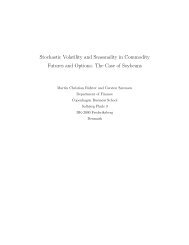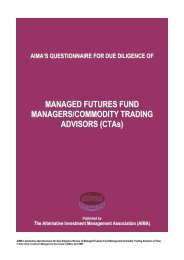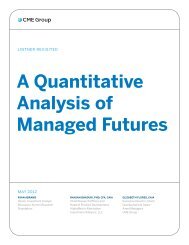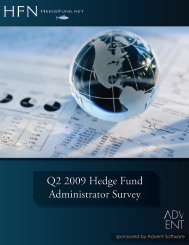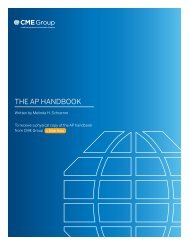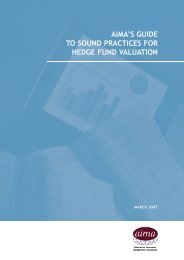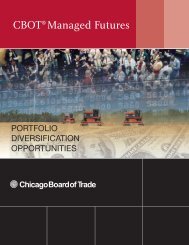SETTING UP A HEDGE FUND â PART TWO - BarclayHedge
SETTING UP A HEDGE FUND â PART TWO - BarclayHedge
SETTING UP A HEDGE FUND â PART TWO - BarclayHedge
You also want an ePaper? Increase the reach of your titles
YUMPU automatically turns print PDFs into web optimized ePapers that Google loves.
If the trading is done in the name of the Company and not through a subsidiary, the creditors, who would<br />
normally be the Fund’s Prime Broker or other trading counter-party, could claim against the assets of the<br />
other Sub-Funds of the Company. This risk is avoided if the trading is carried out through a limited<br />
liability subsidiary trading company. Thus, in the event that the trading for one Sub-Fund, through its own<br />
subsidiary company, resulted in substantial losses, these losses would be contained within that subsidiary<br />
company and, because of its limited liability, could not pass through to other Sub-Funds of the Company<br />
and penalise the shareholders in those other Sub-Funds.<br />
(It should be noted that the protection provided by utilising subsidiary trading companies will not<br />
eliminate the possibility of a disgruntled shareholder suing the Company for bad performance and,<br />
thereby, putting shareholders of other Sub-Funds of the same Company at risk. The only way to ensure<br />
absolute separation from such a liability is by establishing each of the Sub-Funds as an entirely separate<br />
legal entity, so that each sub-fund is a stand-alone fund in its own right. This obviously adds to the cost.)<br />
b) The withholding tax consequences of investment in some jurisdictions can be alleviated by investing<br />
through a company incorporated in another jurisdiction with a favourable double taxation treaty. In these<br />
circumstances it is often more efficient to establish a subsidiary trading or investment company in the<br />
favourable jurisdiction, whilst incorporating the Fund in another jurisdiction more suitable for an offshore<br />
fund (for example a Mauritian subsidiary for a BVI, Cayman or Bahamian domiciled fund, investing in<br />
India).<br />
c) It should be noted that such subsidiary trading companies will incur registered agency, government,<br />
administration and directors fees, as applicable, depending on the jurisdiction of the company.<br />
Jurisdiction & Domicile of the Fund (Reference Question 9)<br />
a) There is a wide choice of jurisdictions to choose from, including: Ireland and Luxembourg and after May<br />
1 st , 2004, Malta, within the European Union; the traditional UK offshore centres of the Channel Islands<br />
(Jersey and Guernsey) and the Isle of Man; and other locations, including, inter alia, Anguilla, the<br />
Bahamas, Bermuda, the British Virgin Islands, the Cayman Islands and the Turks & Caicos Islands.<br />
Some of these jurisdictions require resident management companies to be established and all impose<br />
different levels of regulatory control. Fees and costs can vary widely in different jurisdictions. Some<br />
jurisdictions will be precluded because of marketing considerations.<br />
Depending on the type of fund and the targeted investor, for most alternative investment and hedge funds,<br />
Custom House will in all probability recommend either the British Virgin Islands or the Cayman Islands as<br />
an appropriate jurisdiction of domicile, or, if a European Fund is required, Jersey or Malta - although<br />
Custom House are quite capable, if required, of establishing and administering funds incorporated in most<br />
of the other jurisdictions.<br />
Anguilla, which is a lightly regulated jurisdiction, is a suitable low-cost alternative for single investor or<br />
family office funds, which are established for risk management or other fiscal reasons and are not<br />
intended to be offered to third party investors.<br />
b) BAHAMIAN, BRITISH VIRGIN ISLANDS ("BVI"), AND CAYMAN ISLANDS (“Cayman”)<br />
International preference for the Bahamian, BVI and Cayman funds reflects the relative speed, efficiency<br />
and cost effectiveness of both establishing and operating a fund in these jurisdictions. Perhaps the most<br />
efficient of this group is the Cayman Islands whereas the Bahamas can take the longest time. Custom<br />
House has developed close relationships with its attorneys in these jurisdictions, as a result of which the<br />
operation of funds, established in these jurisdictions and administered by Custom House, is run at a high<br />
level of efficiency, that is perhaps rare in the Caribbean.<br />
The regulatory restrictions imposed in these jurisdictions provide considerable flexibility. It is Custom<br />
House's belief that investor protection can be fully provided for by:<br />
i) ensuring that the Memorandum & Articles of Association ("Mem & Arts") are professionally<br />
written and, where necessary, restrictive;<br />
ii)<br />
ensuring that the Offering Documentation complies with the Mem & Arts, gives full disclosure of<br />
the risks and contains strong controls, checks and balances and such restrictions as are necessary<br />
to protect investors; and<br />
5


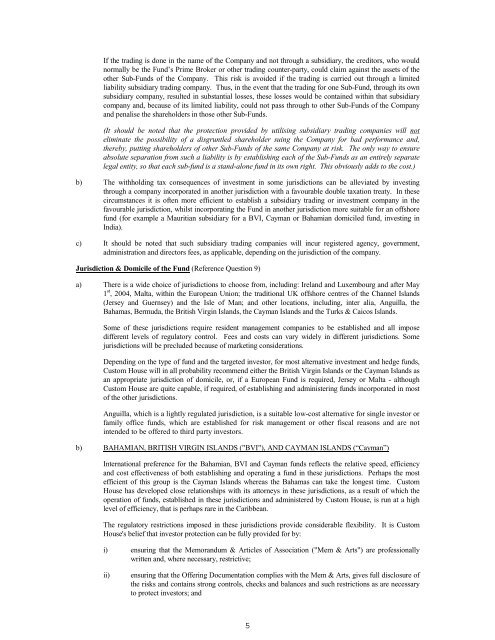
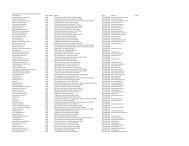
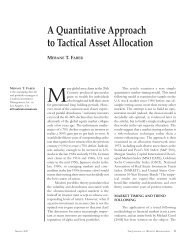
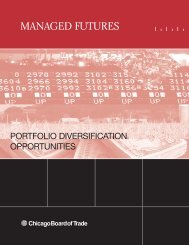
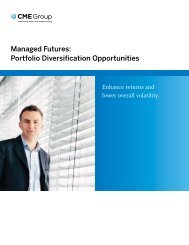
![Definitions & Concepts... [PDF] - Cycles Research Institute](https://img.yumpu.com/26387731/1/190x245/definitions-concepts-pdf-cycles-research-institute.jpg?quality=85)
